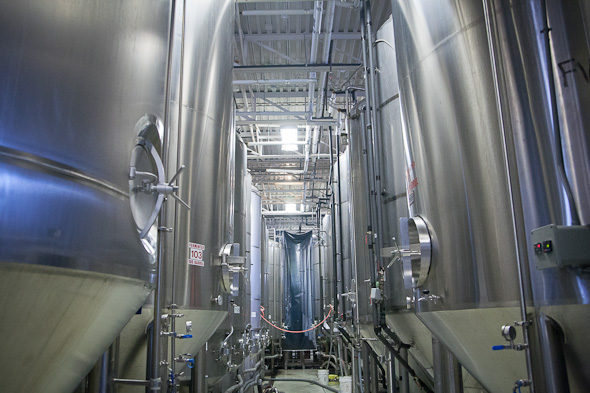Last week, I wrote a piece for the Globe and Mail about contract brewing, the practice wherein brewing companies or virtual breweries rent space from larger facilities to make their beer.
Given the constraints of the 800 words I was alotted, there was much I did not have time to dig in on and so the final piece was something of an overview of the practice, with some brief discussion of why it might be growing in popularity–especially in Ontario–with some insight from a business owner, Shehan De Silva of Lost Craft Beer, who has had success with this model, and from a bricks and mortar brewery owner, Jason Fisher of the Indie Ale House, who is generally opposed to this model for what he feels it brings (or doesn’t) to the industry as a whole.
The article was intentionally targeted at the Globe and Mail’s “general audience” and so much of the beer geekery I might have dug in on was omitted. Accordingly the responses from beer industry folks on twitter, Facebook, and my email were passionate and varied. Interestingly, the article seemed to simply confirm everyone’s beliefs no matter which side of the argument you might be on. Both virtual brewers and bricks and mortar brewers have reached out to me in the interim to say I had represented their side well (Not to toot my own horn, but beep fucking beep).
Also of interest, one owner of a contract brewing facility says he was subsequently inundated with calls from interested new brewing companies. Er, sorry / you’re welcome, Ontario?
Anyway, here are some mostly random tidbits I had hoped to include but couldn’t. Continue reading “Five more points about contract brewing”



